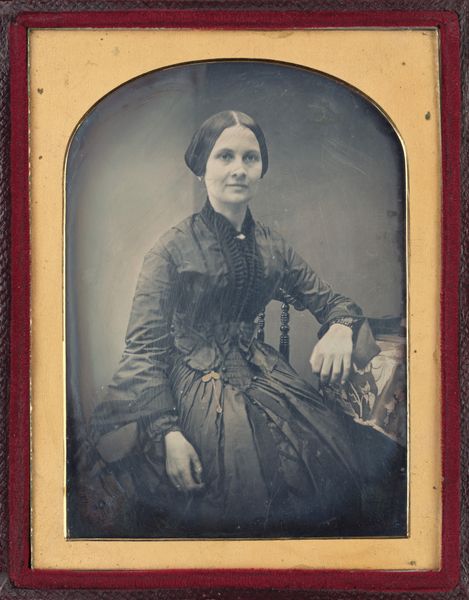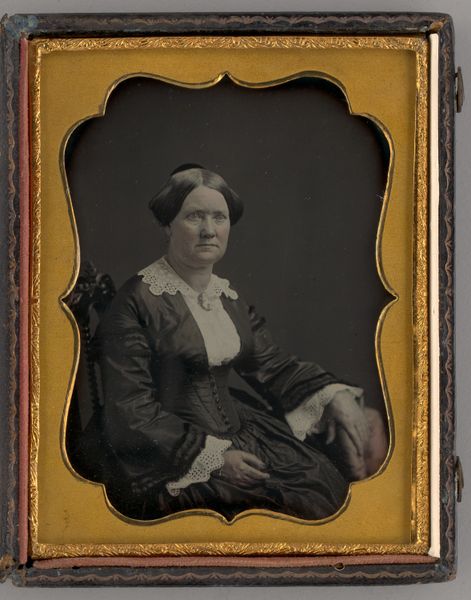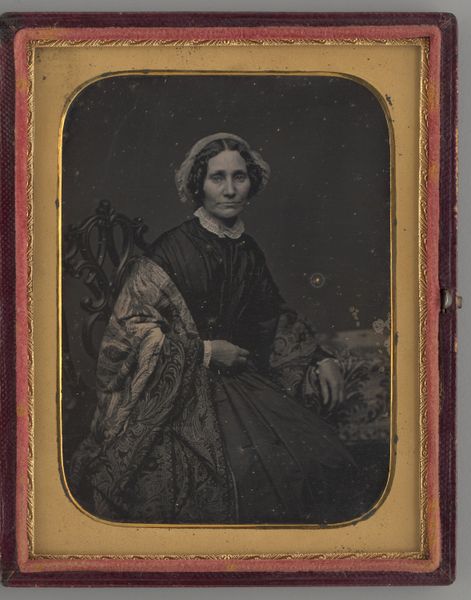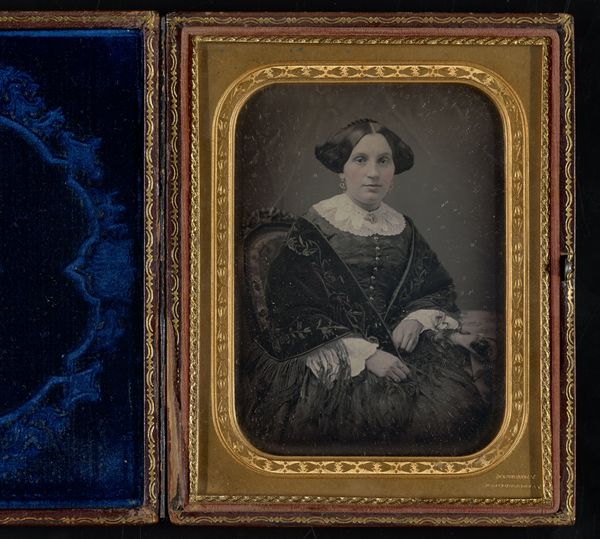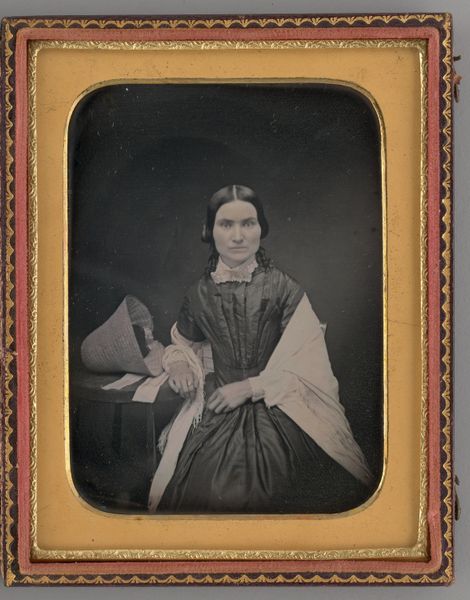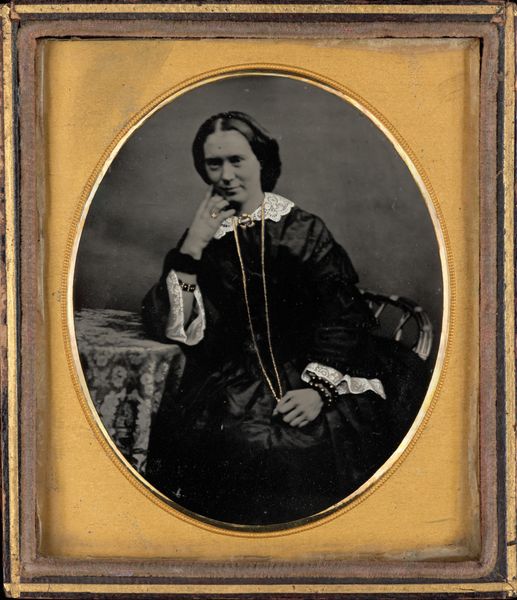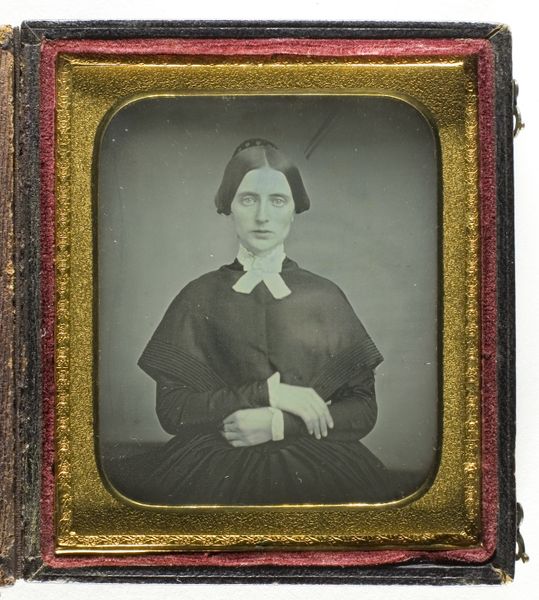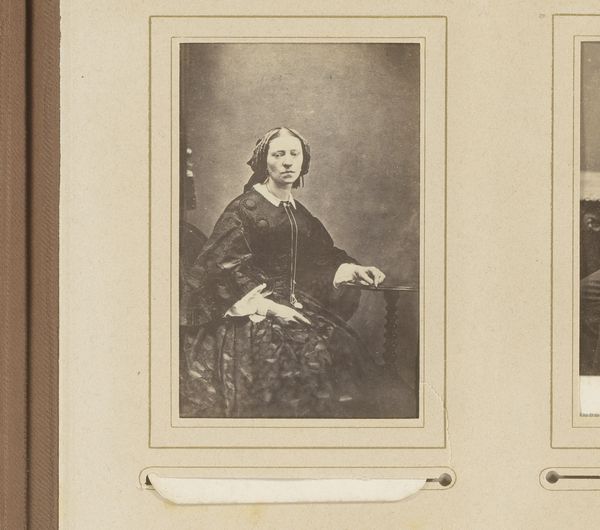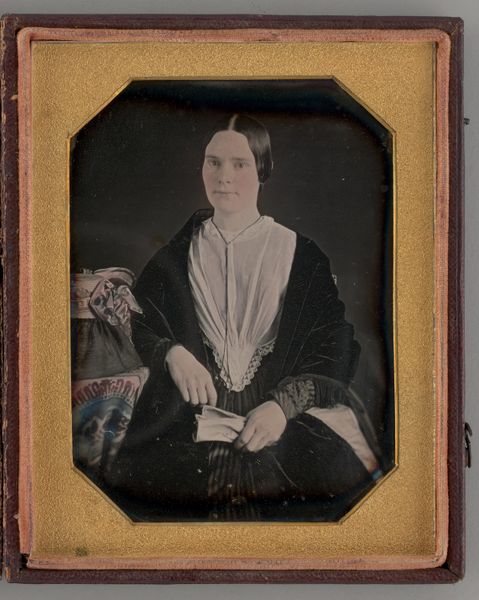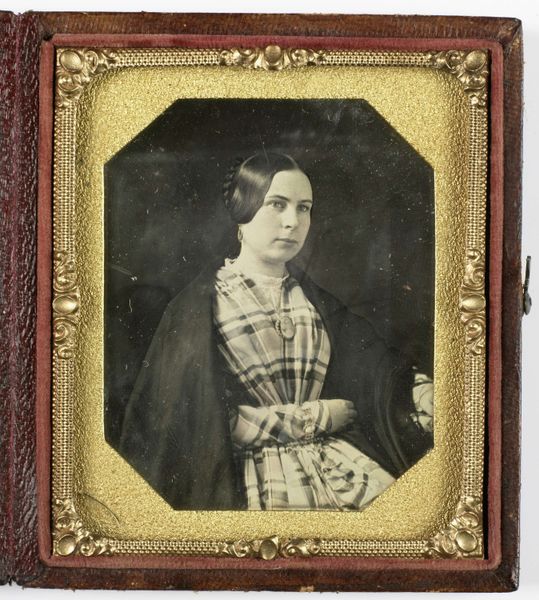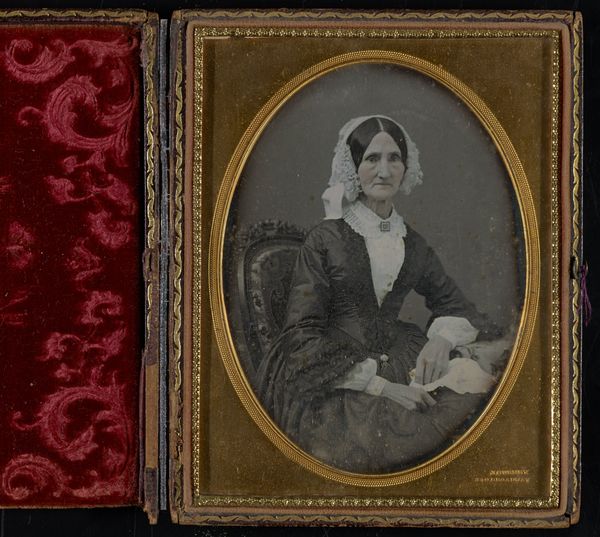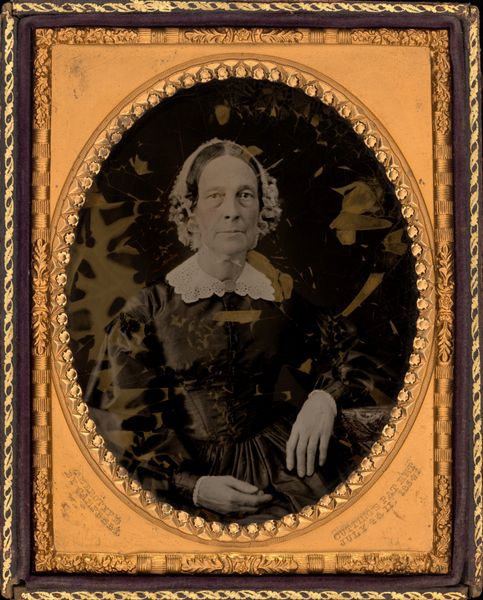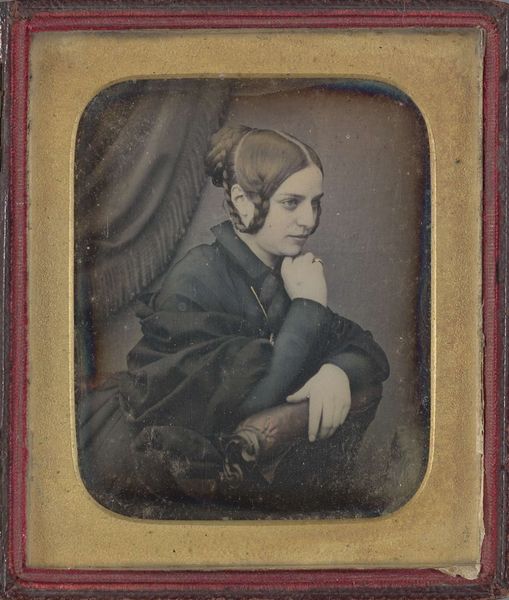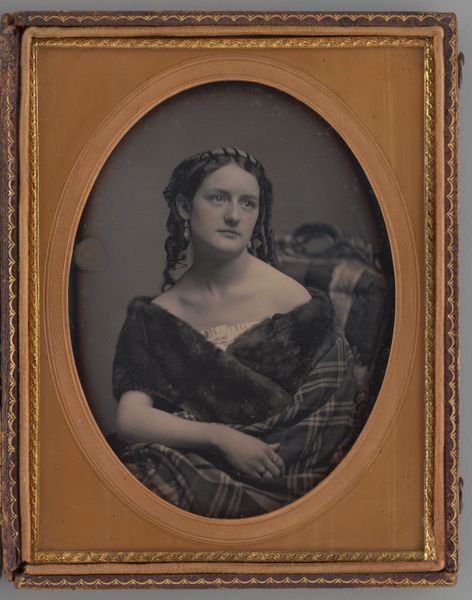
daguerreotype, photography
#
portrait
#
16_19th-century
#
daguerreotype
#
photography
#
united-states
#
realism
Dimensions: 14 × 10.9 cm (5 1/2 × 4 1/4 in., plate); 15.1 × 24.2 × 1.2 cm (open case); 15.1 × 12.1 × 2 cm (case)
Copyright: Public Domain
This portrait of a seated woman was made by John Adams Whipple using the daguerreotype process, one of the earliest forms of photography. It was a cutting-edge technology back then. The image is captured on a silver-plated copper sheet, which has been treated with chemicals to make it light-sensitive. After a long exposure in the camera, the image is developed using mercury vapor, resulting in a delicate, one-of-a-kind picture. The plate’s surface has a mirror-like sheen, and its fragile materiality demanded protection under glass. The image is housed in a decorative case, much like a precious jewel. The daguerreotype was a labor-intensive process, requiring specialized knowledge and equipment, so it offered an interesting new commercial opportunity. Although it was quickly superseded by other photographic methods, it represents a key moment in the history of image-making, when science and art converged to capture a likeness with unprecedented accuracy. It shifted the creation of portraits from the laborious handcraft of painting, to something available to the rising middle classes.
Comments
No comments
Be the first to comment and join the conversation on the ultimate creative platform.
